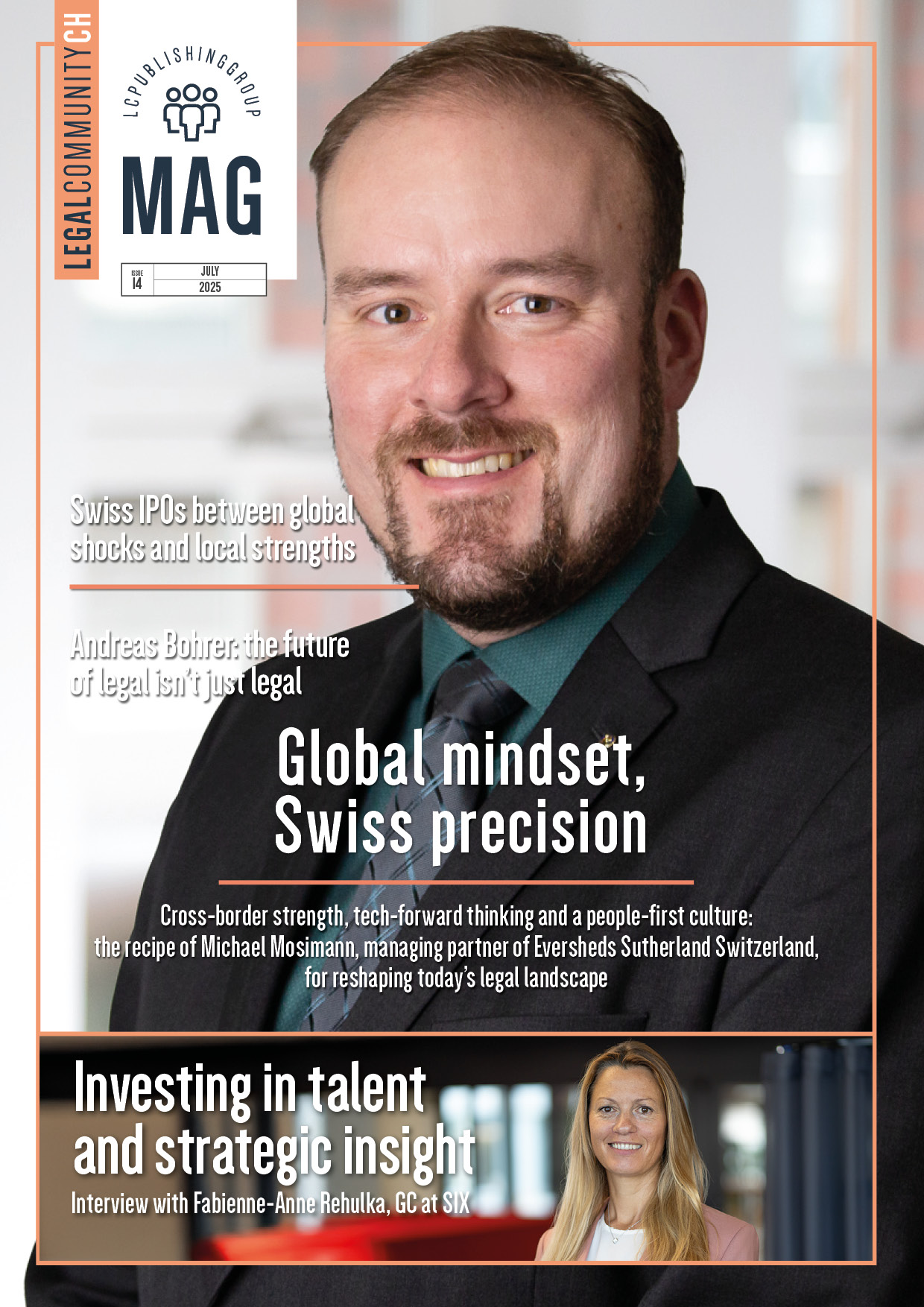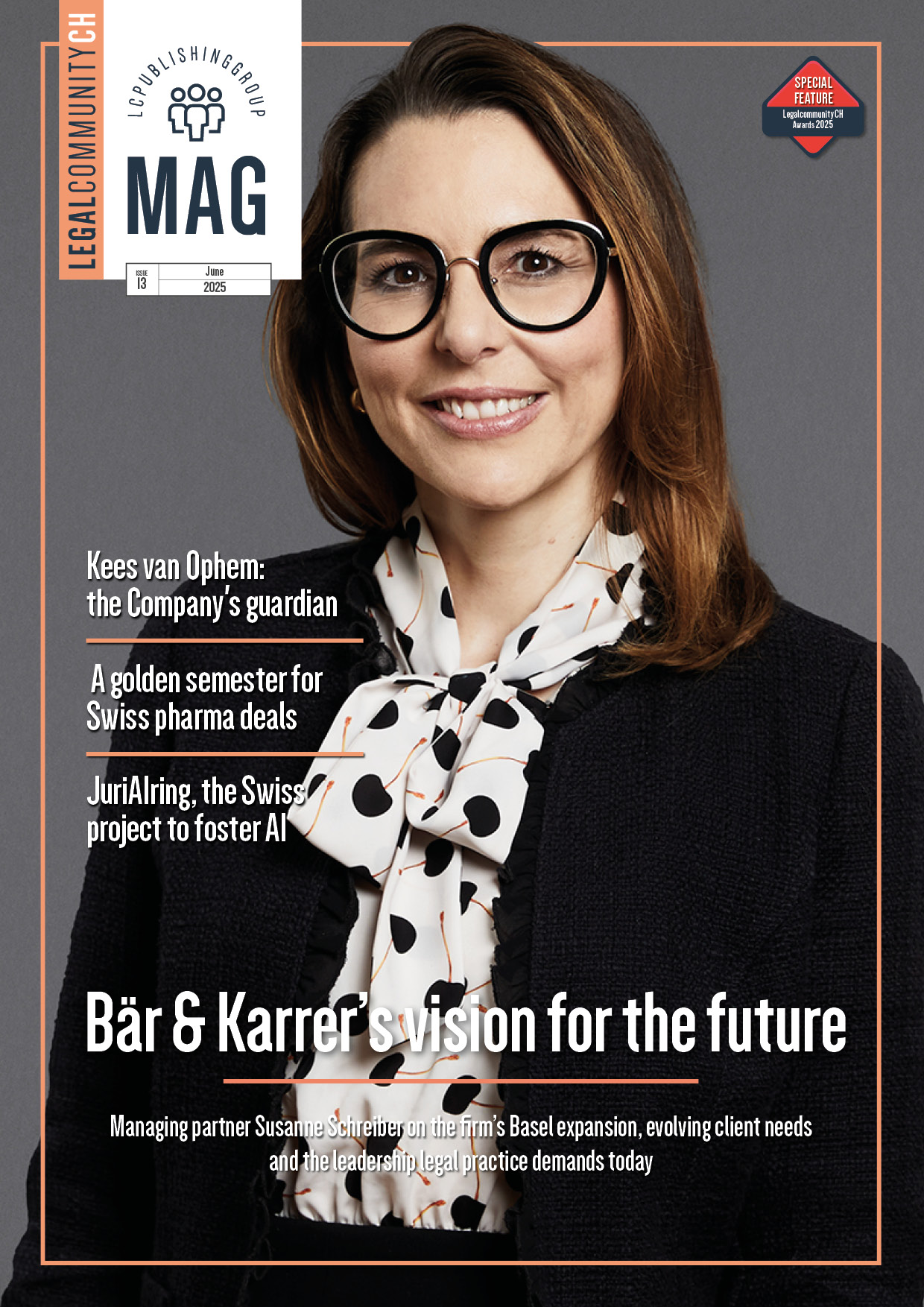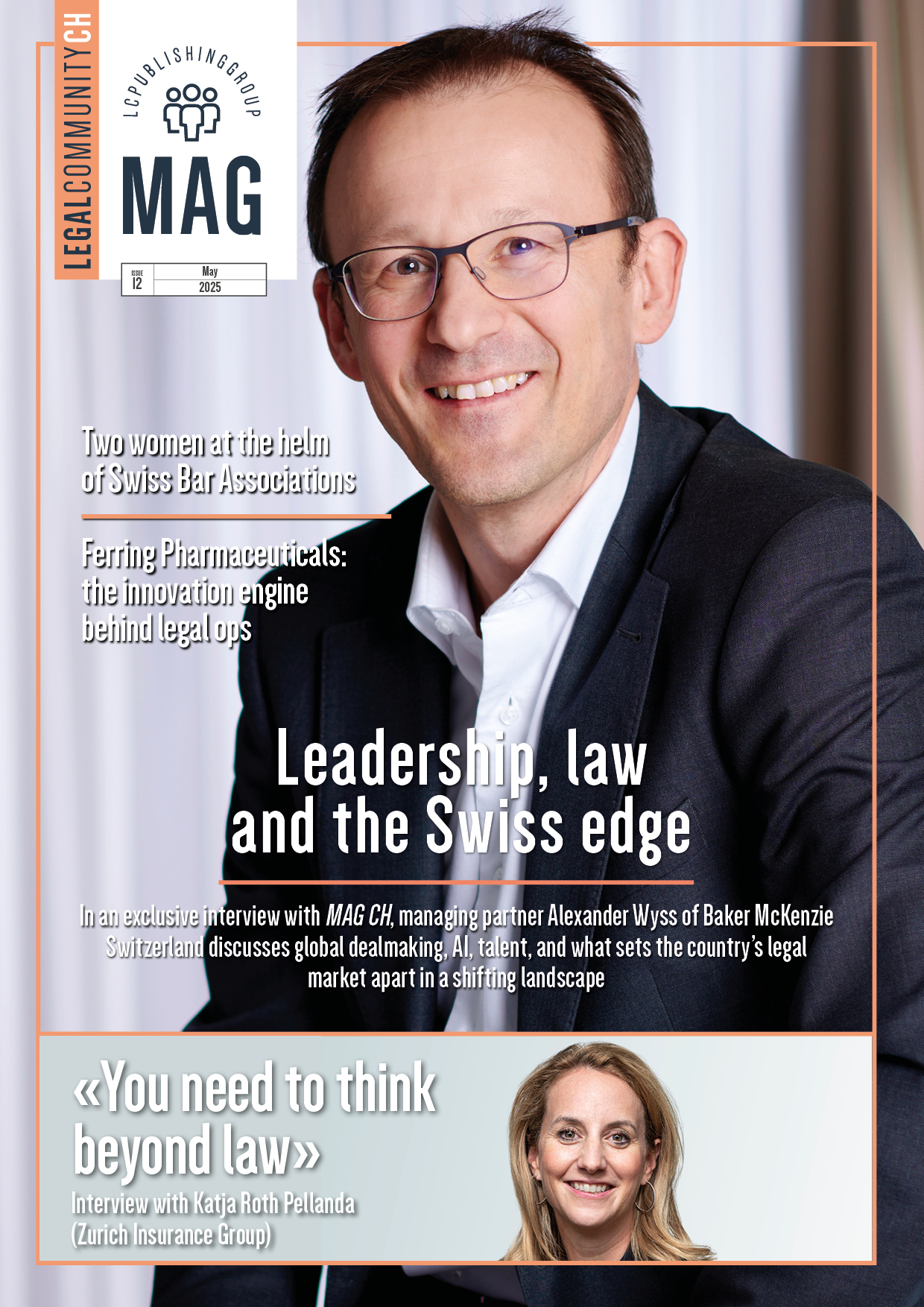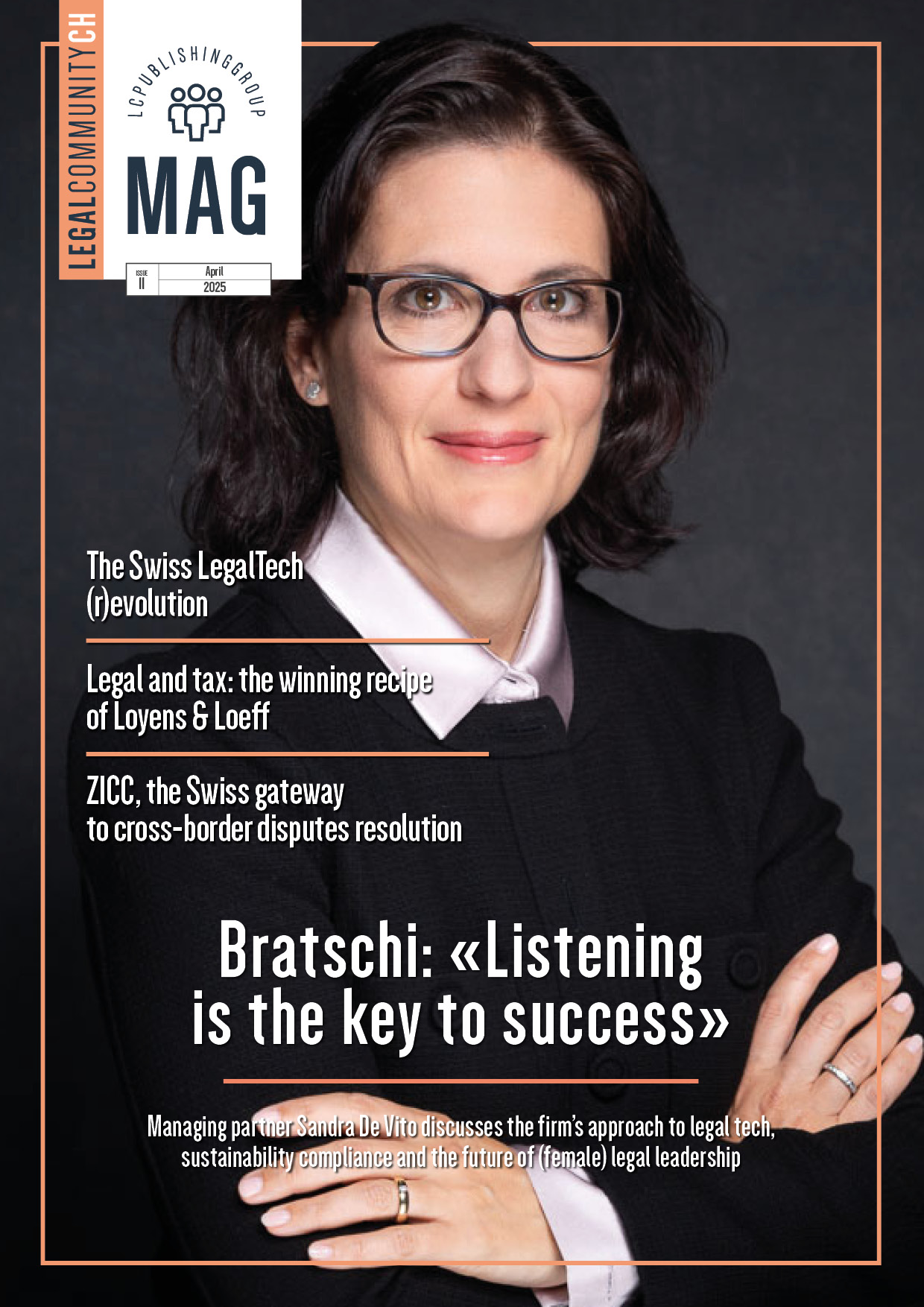Why I decided to go back to private practice after working at IBM
Alesch Staehelin just got out of school. Not literally—he’s been a lawyer for a couple of decades. But he left the U.S. tech colossus IBM Corp. for private practice at TIMES Attorneys in Zürich, Switzerland. Staehelin, who specializes in law involving all aspects of technology, says he went in-house at IBM to learn about information technology and how modern multinational corporations work. And he says he’s learned a lot—how to negotiate on behalf of a single client on matters involving the European Union and competition, how to sell executives on compliance efforts, how to spread the word about those compliance efforts throughout the organization and how to negotiate – and close – complex, multimillion cross-border tech deals. Along the way, he gained expertise in data security and privacy, the two hot buttons for in-house legal practice everywhere.
Staehelin is an engaging conversationalist and is in demand on the European legal conference circuit. He plays tenor saxophone, too, and if a conference features music, he often joins the band on stage for an informal jam session. Inhousecommunityus.com spoke with him earlier this month as he prepared to leave IBM about life in-house, how it differs from private practice, and what he plans to do in his new job.
What made you want to go back to a law firm?
Going back to private practice was always part of my plan A. I don’t even have a plan B. It’s a part of my natural progression. Before IBM I spent almost 8 years in large Swiss law firms. I really wanted to learn a lot about the IT industry and I decided to go to one of the IT giants, IBM, and to get some of that unique IT experience that you wouldn’t get from working in a law firm.
Working at IBM was very flexible. So, I thought, I’ll stay here as long as I like it, and as long as I can learn a lot. And now I’m going to a small law firm and becoming an entrepreneur. That was always the plan.
When you say, learning about IT and whatever IBM can give you, do you consider yourself a multidisciplinary? In-house counsel in general have this opportunity to wear a number of hats. They aren’t exclusively lawyers. They’ve had to pick up some skills in dealing with their business side colleagues that lawyers in private practice may not have to do.
Let’s put it this way: IBM offers a ton of opportunities. Even in a small country like Switzerland, you have opportunities to take on international roles. And I had many roles. They were, however, part of the core legal function. I never intended to become a legal manager. Managing a 50-lawyer team was never the plan.
For a couple of years, I had a European competition law responsibility, which for a person from Switzerland, which isn’t even part of the EU, is quite unusual. I was closely working on some cases here in Brussels [during the interview, Alesch was in Brussels on a business trip] before the European Union that were intense and interesting. They related to IBM’s maintenance business, which is very prosperous and which caught the attention of competitors and the authorities.
Most important, I’ve learned how you manage your top-level executives. We had a so-called commitments proceeding and we agreed on a purely voluntary basis to adjust our business practices so they would be less challenged by competitors. We did not agree on the merits. And there was never a decision on the merits.
I was responsible for the Europe-wide implementation of 10 dense pages of new business practices or changes in our business practices. My biggest challenge was to convince the executives that this was a good thing that still allows them to maintain an entrepreneurial spirit. I saw that at that time they were almost paralyzed by the heavy, heavy weight of European competition law. It’s a very threatening thing—you see the huge fines that companies such as Microsoft have had to pay. Now Google may be facing them. We wanted to avoid that.
When there’s a situation like that, is there a monitor like there is in the U.S., supervising the implementation of the changes?
That all happened internally. Obviously, we worked very closely with our lawyers in Brussels. Everything was much aligned with outside counsel. And it was very expensive.
How big is the legal department in Zurich?
It was always quite small. We have six head counts. Some work part-time. Depending on your skills you can do a lot of stuff. When I joined, I had already a broad background in IP and general corporate law and good knowledge of employment law. I started out doing the regular Swiss stuff. Switzerland is a very small country but we have many multinational companies. We had a lot of mega deals with some of the largest clients of IBM. This was interesting because they were multi-million outsourcing deals.
Did you hire outside counsel or was that handled by headquarters?
IBM has a large legal department. Our core competency is that we negotiate contracts. That we do ourselves. We know our business standards, we know what IBM is asking for, we know how to preserve them. But, yes, for specific legal questions the local legal departments engage outside counsel.
We do have lawyers in the U.S. who, e.g., do nothing else but litigation. They work intensively with outside counsel and are litigation management specialists. That’s a different type of work – we’re generalists.
You’ve been involved with IP and data security. And people are embracing artificial intelligence. Was data security a big part of your job?
Yeah. I’d say it’s one of the most or maybe the most important areas where IBM is doing business. In that outsourcing business, you get data from your clients, you have the job to preserve it, to store it, to move it from A to B and ensure nothing happens.
Of course, in every major business transaction, sometimes things could happen. IBM since the beginning is very keen that the client’s data is the most important, so we have to protect it. Probably even in more than our own data. We are being judged by how we protect data.
So as a lawyer, what does that entail? How does that translate into legal work?
A legitimate question. Overall, IT security is a technical task. As to the lawyer’s part, in the new deals that we do, there is always a data protection agreement. To a large extent that comes from the GDPR [The EU’s General Data Protection Regulation, which took effect in May]. And lawyers are involved in drafting and negotiating it. We have to go through the technical discussions to see whether we understand them—the techies have a tendency to describe something in a way they think is clear. But sometimes we lawyers aren’t smart enough to understand it.
How will you translate your skills of being in-house for a decade into private practice?
I think it will come naturally. Everything I’ve done in my life, personal or professional, has come naturally. I will draw a lot from that experience on a substantive legal level. I’ve learned a lot about the psychology, the structure and needs of large companies and legal departments. I know about the politics that are going on, specific language. How something should be communicated. These are things that you don’t learn in a law firm.
Will you develop your own book of business or stepping into a situation?
Both. It’s a fast-growing market. I’m quite well connected in the Swiss market. People already know that I’m going to the law firm. I’ve already been approached so I will have my own client base. That’s important. TIMES Attorneys is a partner model. The idea is that the client gets the experienced partner working on a case.
We have something in common. You attended Brooklyn College [in New York City, part of the City University of New York] for a while? I earned my bachelor’s degree there.
I decided to go to New York City because I love jazz and I play the tenor saxophone. In my early 20s I looked for an excuse to go to New York to do music, but maybe to do something more meaningful in terms of continuing my studies. At the time I was already a law student at the University of Zurich. I picked the cheapest college I could find in New York City, and that was Brooklyn College. And I took three classes in political science and two classes in music. It was awesome. I’ve learned a lot. I still think almost every week about things I learned there. And I still have friends from back in Brooklyn College.
—Interview by Anthony Paonita
















